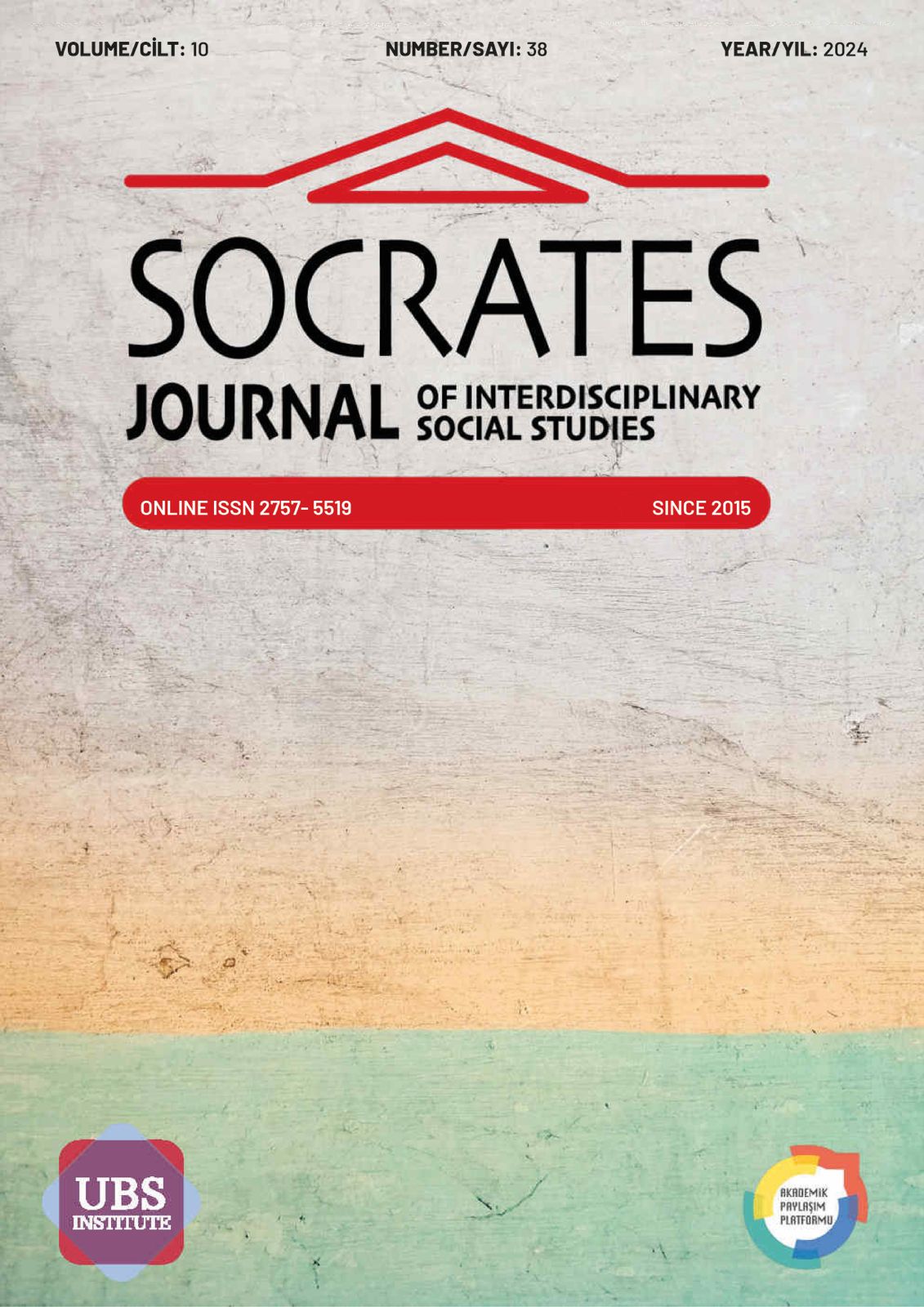EFFECTIVE LEADERSHIP IN PRESCHOOL EDUCATION INSTITUTIONS
DOI:
https://doi.org/10.5281/zenodo.10646355Keywords:
Educational Institutions, Leadership, Effective Leadership, TeacherAbstract
Leadership is becoming an increasingly popular topic of research and discussion among education professionals. Leadership, in its meaning, is now recognized as one of the key elements of a high-quality organization. Therefore, leadership has become a prominent form of behavior in every period of human life. It is really important to be aware of the theories and paradigms that guide actions that can be considered within the scope of leadership in early childhood education. Consciousness is the key to self-control and is an important factor in both education and leadership. Awareness of leadership theories and paradigms allows a researcher or leader to act more precisely within his or her domain and justify his or her choices. Comparative perspectives on leadership expand our understanding across cultural contexts. In the globalizing world, the importance of education is increasing and individuals are involved in the education process from their early ages. In parallel with changing and developing living conditions, teaching processes also have to renew themselves. It is important for the success of the education process that teachers and school administrators contribute to this renewal with their knowledge and skills within the education systems and manage the process effectively. In addition, administrators working in pre-school education institutions need to assume an education-focused and effective leadership role. In this study, the role of effective leadership in the preschool education process was examined by conducting a literature research on the preschool education process and effective leadership.
References
Bayar, M. (2021). The changing leadership approach and the ımportance of entrepreneural leadership ın digitized enterprises. International Academic Social Resources Journal, 6(30), 1399-1406.
Bayar, M. (2021). Pozitif liderlik davranışlarının, çalışanların duygusal iyi oluşlarına etkilerinin analizine yönelik bir araştırma. Üçüncü Sektör Sosyal Ekonomi Dergisi, 56(3), 2147-2176.
Bursalıoğlu, Z. (2005). Okul yönetiminde yeni yapı ve davranış. Ankara: Pegem Akademi.
Çelik, V. (2003). Eğitimsel liderlik. Ankara: Pegem Akademi.
Çubukçu, Z. ve Girmen, P. (2006). Ortaöğretim kurumlarının etkili okul özelliklerine sahip olma düzeyleri. Manas Sosyal Bilimler Dergisi, 8(16), 121-136.
Day, C. (2014). Resilient principals in challenging schools: The courage and costs of conviction. Teachers & Teaching, 20(5), 638-654. doi.10.1080/13540602.2014.937959
Elfers, A. M., & Stritikus, T. (2014). How school and district leaders support classroom teachers’ work with English language learners. Educational Administration Quarterly, 50(2), 305-344.
Ertekin, İ. (2017). Örgütsel iletişim. Ankara: Gece Kitaplığı Yayıncılık.
Freeman, G. G., & Randolph, I. (2013). Leadership strategies for maintaining success in a rural school district. International Journal for Leadership in Learning, 1(1), 7-11.
Gökyer, N. (2004). İlköğretim okulu müdürlerinin öğretim liderliği rollerini gerçekleştirme düzeyleri ve bu rolleri sınırlayan etkenler. Doktora tezi, Hacettepe Üniversitesi, Ankara.
Grissom, J. A., & Loeb, S. (2011). Triangulating principal effectiveness: How perspectives of parents, teachers, and assistant principals identify the central importance of managerial skills. American Educational Research Journal, 48(5), 1091-1123.
Grissom, J. A., Loeb, S., & Master, B. (2013). Effective instructional time use for school leaders: Longitudinal evidence from observations of principals. Educational Researcher, 42(8), 433-444.
Gül, İ. (2017). Türk eğitim sistemi ve okul yönetimi. Samsun: Ceylan Ofset Yayıncılık.
Gümüş E. ve Gümüş, S. (2010). Yönetim süreçleri. Silman, F. ve Ada, Ş. (Ed.), Türk Eğitim Sistemi ve Okul Yönetimi. İstanbul: Lisans Yayıncılık.
Hall, P., & Simeral, A., (2008). Building teachers' capacity for success: A collaborative approach for coaches and school leaders. Association for Supervision and Curriculum Development
Kearney, W., Kelsey, C., & Herrington, D. (2013). Mindful leaders in highly effective schools: A mixed-method application of Hoy's M-Scale. Educational Management Administration & Leadership, 41(3), 316-335.
Klar, H. W., & Brewer, C. A. (2013). Successful leadership in high-needs schools: An examination of core leadership practices enacted in challenging contexts. Educational Administration Quarterly, 49(5), 768-808.
Lin, M. (2012). Cultivating an environment that contributes to teaching and learning in schools: High school principals’ actions. Peabody Journal of Education, 87(2), 200-215.
Meador, D. (2014a). Seven characteristics of a principal. http://teaching.about.com/od/admin/a/Characteristics-Of-A-Principal.htm
Meador, D. (2014b). What makes a school administrator an effective school leader? https://www.thoughtco.com
Memişoğlu, S.P. (2003). Yeni liderlik yaklaşımları ışığında eğitim örgütlerinde lider yöneticilere duyulan gereksinim. Abant İzzet Baysal Üniversitesi Eğitim Fakültesi Dergisi, 3(5), 87-97.
Mendels, P., & Mitgang, L. D. (2013). Creating strong principals. Educational Leadership, 70(7), 22-29.
Morrison, N. (2013). The eight characteristics of effective school leaders. Forbes. from//http://www.forbes.com/sites/nickmorrison/2013/12/30/theeight-characteristics-of-effective-school-leaders/
Okutan, M. (2014). My school principal is not a leader! Project Innovation, 135(1), 93-100.
Whitaker, T. (2012). What great principals do differently: 18 things that matter most (2nd ed.). Larchmont, NY: Eye on Education.
Downloads
Published
How to Cite
Issue
Section
License
Copyright (c) 2024 Socrates Journal of Interdisciplinary Social Studies

This work is licensed under a Creative Commons Attribution 4.0 International License.


